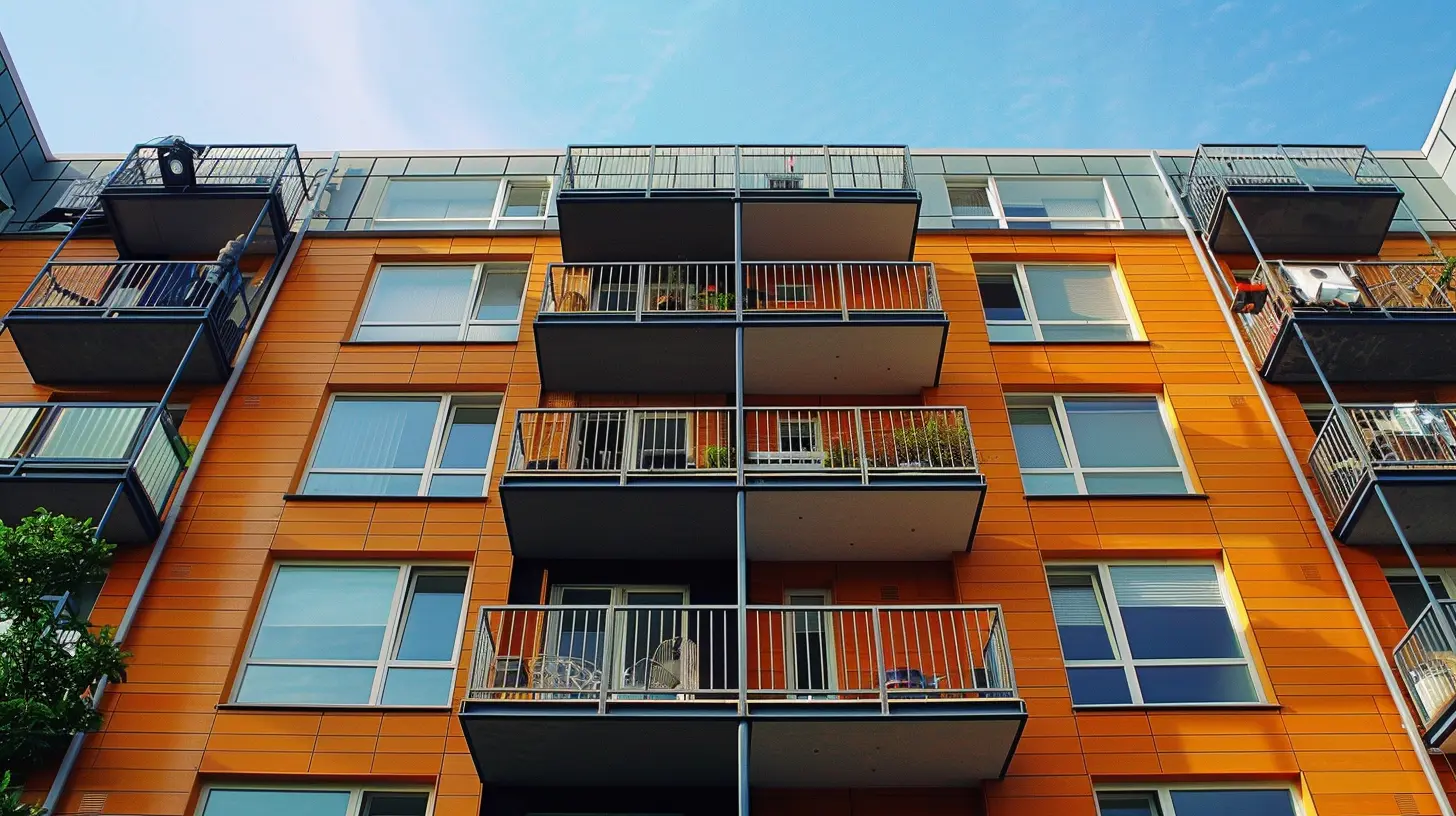The Legal Rights of Tenants Under Lease Agreements
18 August 2025
Renting a home is a big step. Whether you're signing your first lease or you've been renting for years, understanding your legal rights as a tenant is crucial. A rental agreement isn't just a piece of paper—it's a legally binding contract that protects both you and your landlord. However, not everyone fully understands what those protections entail.
In this article, we’ll break down your legal rights as a tenant, covering everything from security deposits to eviction notices. Let’s dive in! 
1. The Right to a Habitable Living Space
Imagine renting an apartment only to find out the plumbing leaks, the heater doesn't work, and there’s mold creeping up the walls. Yikes! Luckily, most tenancy laws require landlords to provide a habitable living space.This means your rental should have:
- Proper plumbing, heating, and electricity
- A structurally sound building (no collapsing ceilings!)
- No infestations of pests like roaches or mice
- Clean water and working sewage disposal
If your landlord fails to maintain livable conditions, you may have the right to withhold rent, request repairs, or even break the lease without penalty. 
2. The Right to Privacy
Your landlord owns the place, but that doesn’t mean they can waltz in whenever they want. You have the right to privacy, and the law requires that landlords provide notice before entering your rental property.Most states require 24 to 48 hours' notice before a landlord can enter for inspections, maintenance, or showing the unit to potential tenants. Exceptions might include emergencies, like a gas leak or fire.
If your landlord keeps showing up unannounced, that’s not just annoying—it’s illegal. At that point, you may be able to take legal action. 
3. The Right to Fair Housing and Freedom from Discrimination
Discrimination in housing is not only unfair—it’s illegal. Under the Fair Housing Act, landlords cannot deny housing based on:- Race or ethnicity
- Religion
- Gender
- Disability
- Family status (like being a single parent)
So, if a landlord refuses to rent to you just because you have kids or belong to a certain group, they’re breaking the law. If you ever feel discriminated against, you can file a complaint with the U.S. Department of Housing and Urban Development (HUD). 
4. The Right to Get Your Security Deposit Back
Security deposits are a big chunk of money, and getting them back shouldn’t feel like pulling teeth. Landlords often require a deposit to cover possible damages, but they can’t just keep it without justification.Here’s what you should know:
- Landlords must return your deposit within a set time frame (usually 14 to 30 days).
- They must provide an itemized list of any deductions if they keep part of it.
- Normal wear and tear is not a deductible expense (a few scuff marks on the wall don’t count as "damage").
If your landlord refuses to return your deposit without valid cause, you can take legal action in small claims court.
5. The Right to a Lease Agreement in Writing
A handshake deal might work for borrowing a cup of sugar from your neighbor, but when it comes to renting, you need everything in writing.A lease agreement should cover:
- Monthly rent and due dates
- Lease duration
- Security deposit details
- Maintenance responsibilities
- Rules for early termination
Having a written lease helps protect you in case there’s ever a dispute down the road.
6. The Right to Repairs and Maintenance
If your bathroom sink starts leaking or your heater breaks in the middle of winter, it’s not your responsibility to fix it (unless you caused the damage). Your landlord has a legal duty to handle repairs in a timely manner.Typically, you need to:
1. Notify your landlord in writing about the issue.
2. Give them reasonable time to fix it.
3. If they fail to act, you may be able to withhold rent, make the repairs yourself and deduct the cost, or even involve local housing authorities.
Ignoring necessary repairs isn't just frustrating—it can be a violation of tenant rights.
7. The Right to Be Protected from Unlawful Eviction
Eviction is a serious matter, and landlords can’t just lock you out overnight because they decided they want you gone.A landlord must follow proper eviction procedures, which typically include:
- Proper written notice (e.g., a 30-day notice to vacate)
- A legal reason for eviction (e.g., non-payment of rent, lease violations, or illegal activities)
- Court involvement if the tenant refuses to leave
If a landlord tries to evict you without going through legal channels—by changing the locks, cutting utilities, or threatening you—you may have grounds to take legal action against them.
8. The Right to Break the Lease in Certain Circumstances
Life happens. Sometimes, you need to leave a rental before your lease is up. But can you do that without legal consequences?In general, breaking a lease early can result in penalties unless:
- The landlord is violating the lease (e.g., refusing to make necessary repairs).
- You are a victim of domestic violence (laws in many states allow victims to break leases without penalty).
- Your landlord agrees to an early termination arrangement.
If you need to break a lease, communicate with your landlord and try to negotiate a solution.
9. The Right to Protection from Rent Increases (In Some Cases)
In many areas, landlords have the right to increase rent, but they must follow local rent control laws where applicable.If your city has rent control, your landlord can’t raise the rent past a certain percentage annually. Even in areas without rent control, landlords must usually give advance notice (typically 30 to 60 days).
If your rent suddenly spikes without warning, check your lease and local laws to see if the increase is legal.
10. The Right to Have Guests and Live in Peace
Your rental is your home. That means you have the right to:- Have visitors and overnight guests (as long as they don’t permanently move in)
- Enjoy your space without harassment or excessive restrictions
- Live without constant interference from your landlord
However, all of this must be in line with the lease terms. For instance, if your lease states that you can’t have long-term guests without permission, violating that rule could lead to consequences.
Final Thoughts
Understanding your legal rights as a tenant can save you from unnecessary stress and financial loss. Knowledge is power, and knowing what your lease agreement entitles you to can prevent landlords from taking advantage of you.If you ever feel like your rights are being violated, document everything, communicate with your landlord, and reach out to local tenant advocacy groups or legal professionals if necessary.
At the end of the day, renting should be a comfortable and hassle-free experience. Make sure you're informed, stand your ground, and ensure your home truly feels like home!
all images in this post were generated using AI tools
Category:
Lease AgreementsAuthor:

Cynthia Wilkins
Discussion
rate this article
1 comments
Josephine McLaurin
Great overview! Understanding tenant rights is crucial for both tenants and landlords to ensure fair lease agreements.
August 27, 2025 at 12:30 PM

Cynthia Wilkins
Thank you! I'm glad you found the overview helpful. Understanding tenant rights is indeed essential for fostering fair agreements and healthy landlord-tenant relationships.


